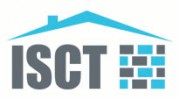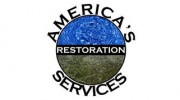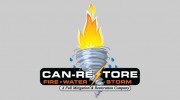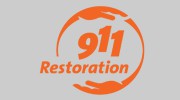Transforming Your Space, One Window at a Time
Indoor Science Consultants and Technicians (ISCT) is a leading mold inspection and mold testing company in the United States. Since our establishment in 1997, we have built a reputation for honesty, integrity, ethics, and premium customer service. Over the years, we have expanded our network to cover locations across the country, providing mold testing services seven days a week.
At ISCT, we understand the importance of providing quick results for mold testing. This is crucial for homeowners and businesses to get a plan of action ready to address any mold issues promptly. Our team of experienced mold inspectors uses advanced tools such as infrared cameras and moisture meters to detect mold "hot spots" efficiently. These tools have become the scientific standard for monitoring, detecting, and controlling moisture, which is essential for mold growth.
We strictly focus on mold assessments and do not perform mold remediation. This ensures that we maintain our objectivity and avoid any potential conflict of interest. Our pricing is transparent, and we encourage you to view our Pricing page before scheduling an appointment.
From the moment you contact us, you will be impressed with our knowledge, attention, and eagerness to provide you with a solution to your potential mold problem. Our mold inspectors will recommend the best areas to take mold tests, whether it's a single area or multiple areas. We then send the samples to highly trained lab technicians who examine them under a microscope and identify the types of molds present along with their concentration.
Why Perform Mold Testing?
There are numerous valid and valuable reasons to perform mold testing. Here are a few examples:
1. Establish a baseline for future testing: This allows a mold professional to track and evaluate the progress of mold abatement activities. Without a baseline, it is difficult to establish that progress has been made.
2. Establish the presence of mold and the justification for remediation: Many remediators and insurance companies will not authorize or undertake mold remediation if the presence of mold growth is not scientifically demonstrated.
3. Set the parameters for the remediation: Many remediation companies will not initiate an abatement project without the input of a testing company to define the boundaries of the affected area needing remediation.
4. Identify the types of mold present, i.e., "natural" or "toxic": In many cases, residents are interested in the types of mold present and the possible relation to medical symptoms they may be experiencing. Certain mold species may cause serious illness in the elderly, or in infants; people who have weak immune systems due to chemotherapy or AIDS.
5. Find out the levels present: Although mold is mold, and its presence calls for remediation, it is useful to know if the ambient airborne levels are in a range of thousands, or hundreds of thousands. For example, this may affect decisions regarding the timeliness of remediation, and the continued occupancy of the premises.
6. Find "hidden mold": Mold growth may often not be visible in a house, but known water intrusion or a moldy odor provides cause for concern. Testing will identify if there is a mold problem, even when there is no visible mold growth.
7. "Clear" a remediation, that is, to show that all mold is gone after remediation: Often, mold remediation will miss a mold-contaminated area. Testing of the air in the contained work area will assure that the levels inside the work area are reduced to ambient levels. This also provides documentation for future real estate transfers that the mold was properly and effectively removed.
8. "Establish" the lack of mold, as in a home purchase: Sometimes a homebuyer will have concerns about mold when purchasing a new home. This may be as a result of a bad experience with mold in their previous residence. Mold testing can provide the peace of mind that there are no problems with elevated airborne mold in the new house.
9. Show that a flood has not yet created mold growth: Floods in homes and offices can create an environment conducive to mold growth. Testing can help determine if mold growth has occurred as a result of a flood.

Be the first to review ISCT Mold Testing.
Write a Review




